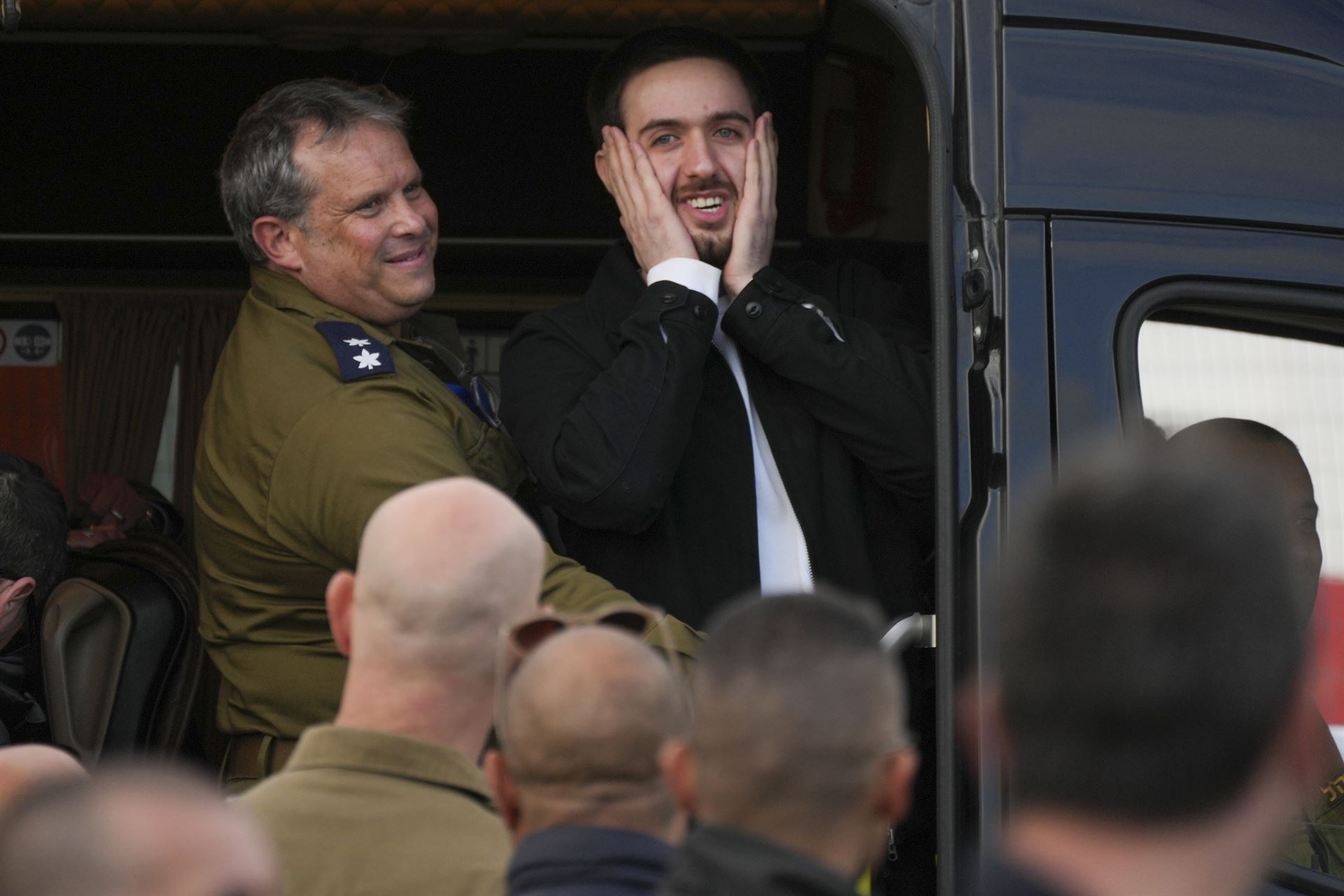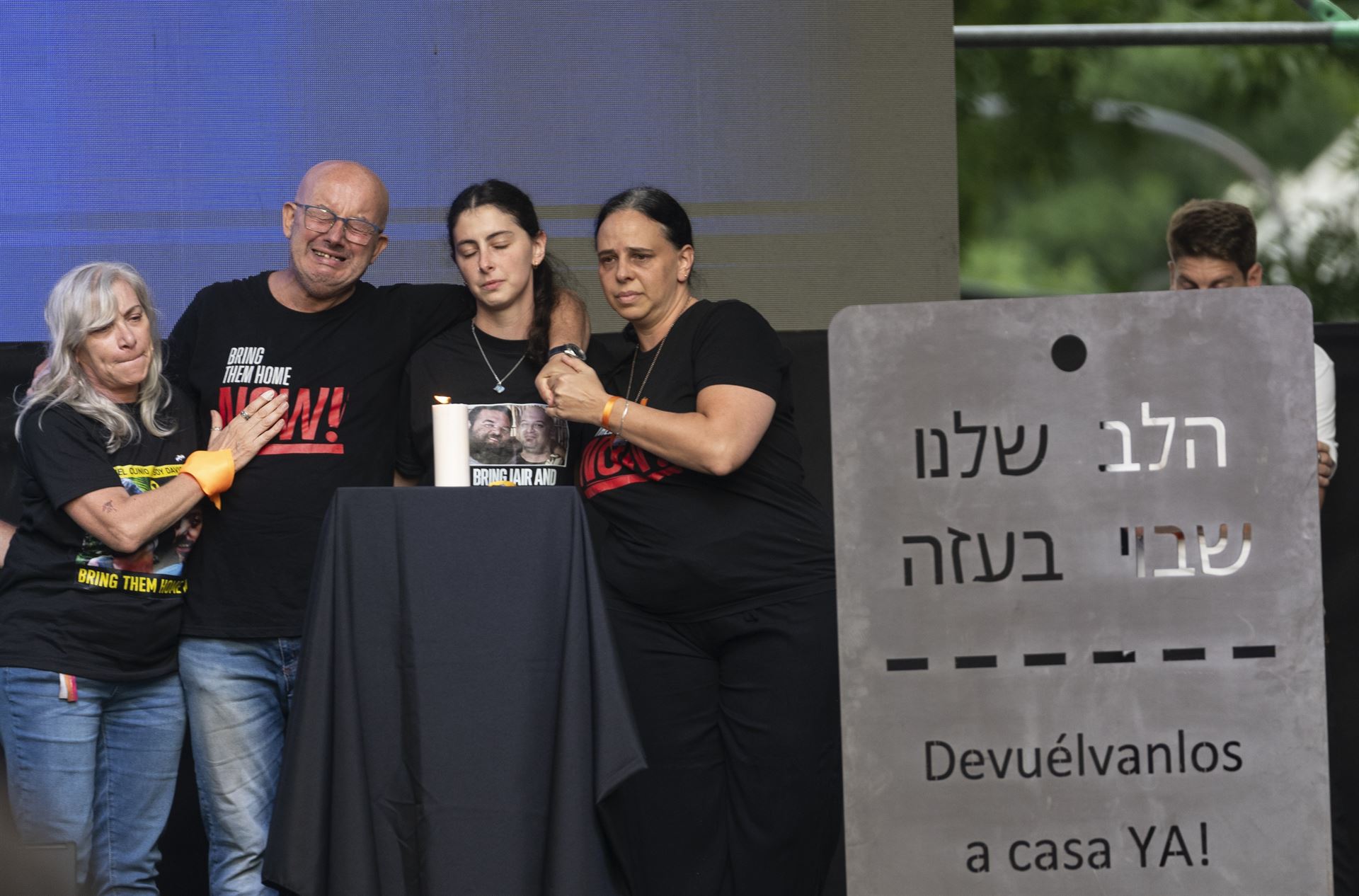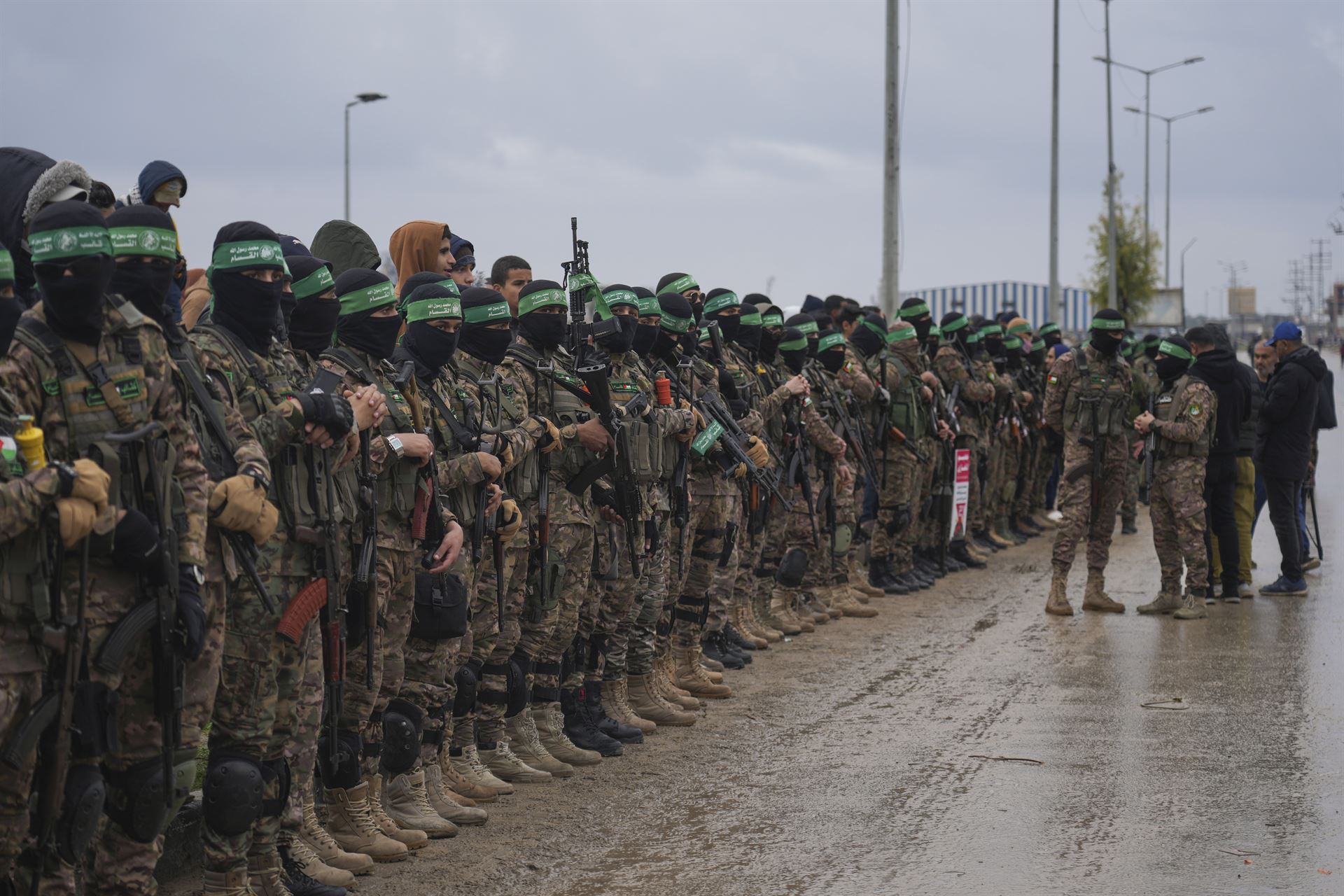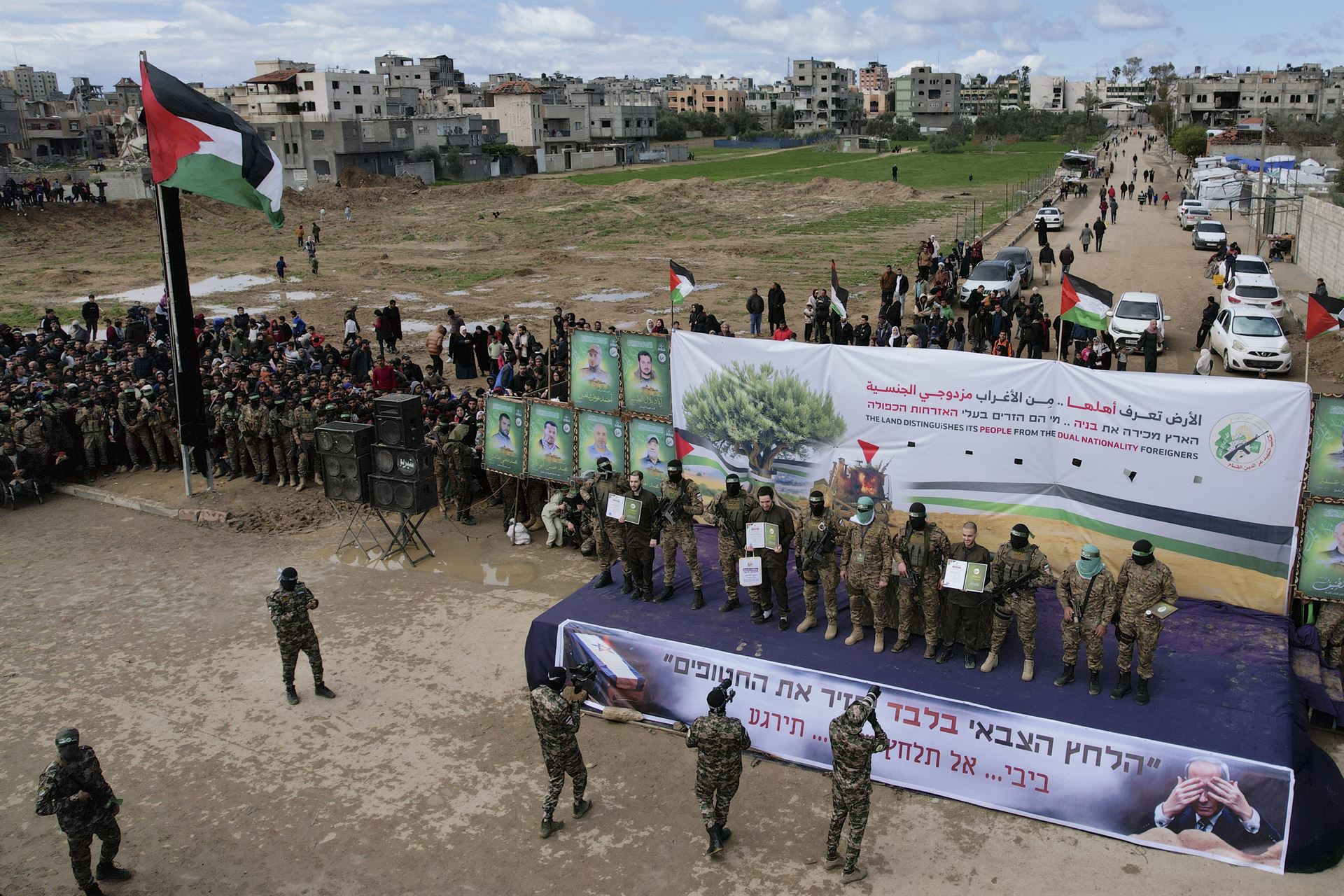
JERUSALEM / GAZA - Israeli and Hamas officials said Tuesday they have agreed on the exchange of the bodies of dead hostages for the release of more than 600 Palestinian prisoners, according to media reports on Wednesday.
Israeli officials said that the country is considering an extension of the 42-day truce in Gaza as it seeks to bring home the remaining 63 hostages, while putting off agreement on the future of the enclave for now.
The initial phase of the ceasefire deal, launched with the backing of the United States and the help of Egyptian and Qatari mediators on January 19, is due to end on Saturday and it remains unclear what will follow.
"We are being very cautious," Israeli Deputy Foreign Minister Sharren Haskel told reporters in Jerusalem, when asked whether the truce might be extended without the start of talks on a second phase which would include difficult issues such as a final end to the war and the future governance of Gaza.
ALSO READ: Hamas hands over Shiri Bibas’ body as Netanyahu visits West Bank
"There wasn't a particular agreement on that, but it might be a possibility," she said. "We didn't close the option of continuing the current ceasefire, but in return for our hostages, and they have to be returned safely."
If no agreement is reached by Friday, officials expect either a return to fighting or a freeze in the current situation in which the truce would continue but hostages would not return and Israel may block the entry of aid into Gaza.

Two officials who have been involved in the ceasefire process told Reuters that Israel and the Palestinian militant group Hamas have not engaged in negotiations to finalize an agreement over phase two of the ceasefire which will have to bridge wide gaps between the two sides to be concluded.
"I think it's unrealistic to see something like that forming within a few days," Haskel said. "This is something that needs to be discussed in depth. This is going to take time."
The deal, which included the release of 33 Israeli hostages in return for some 2,000 Palestinian prisoners and detainees held in Israeli jails and the withdrawal of Israeli troops from some of their positions in Gaza, has survived numerous hiccups.
READ MORE: Israel launches new airstrike in Lebanon despite ceasefire, military says
So far, 29 Israeli hostages - plus five Thais - have been released in exchange for hundreds of Palestinian prisoners and detainees, with the bodies of four more hostages, initially due to be handed over on Thursday, still to come.
There is now a standoff over the release of more than 600 Palestinians, which Israel has delayed, accusing Hamas of breaching the agreement by making a public show of the handover of Israeli hostages in Gaza.
Hamas official Basem Naim said progress could not be made while the prisoners were still being held but that Hamas was committed to a permanent ceasefire and the full withdrawal of Israeli forces.

Haskel said she hoped a solution would be found to secure the handover of the final four in the next few days.
Witkoff due in Israel
Steve Witkoff, US President Donald Trump's special Middle East envoy, is expected in Israel on Wednesday to continue discussions on the second stage, opening the way to a final end to the war in Gaza.
Negotiations over the second phase, intended to secure the release of the remaining hostages and the full withdrawal of Israeli forces from Gaza, had been meant to start this month, 16 days after the start of the truce.
READ MORE: Hamas demands release of Palestinian prisoners to resume Gaza peace talks
Qatar's prime minister flew to Florida on February 6 and met Witkoff to discuss the "full implementation" of phase one and "to kick-start negotiations for the second phase", according to an official briefed on the talks.
But officials in the ceasefire process say that so far none of the principal negotiators have met face to face since the first phase was agreed last month and there is little clarity on options for the "day after".

"This is the day after Gaza, after the war in Gaza and what's going to happen there, and so we are continuing that channel with the Americans," Haskel said.
The fighting in Gaza was triggered by a Hamas-led attack on October 7, 2023, in which Israel said about 1,200 people were killed and 251 were taken as hostages back to Gaza.
Israel's retaliatory assault on Gaza has killed more than 48,000 Palestinians, Palestinian health officials say, and laid waste to much of the enclave.
Israel has said Hamas cannot have any role in the future running of Gaza and has rejected a role for the Palestinian Authority.
READ MORE: Hamas affirms commitment to truce deal, announces hostages to be released
Hamas has said it will not necessarily demand that it remain in charge of the enclave, which it has governed since 2007, but that it must be consulted.
Arab states, which are likely to have to shoulder much of the financial burden of rebuilding devastated Gaza, have been struggling to come up with a proposal of their own but are expected to demand a role for the Palestinian Authority.
Uncertainty increased after Trump proposed moving all the Palestinians out of Gaza to make way for a US waterfront development project, a plan that was endorsed by the Israeli cabinet but rejected by Arab states and Palestinians.



